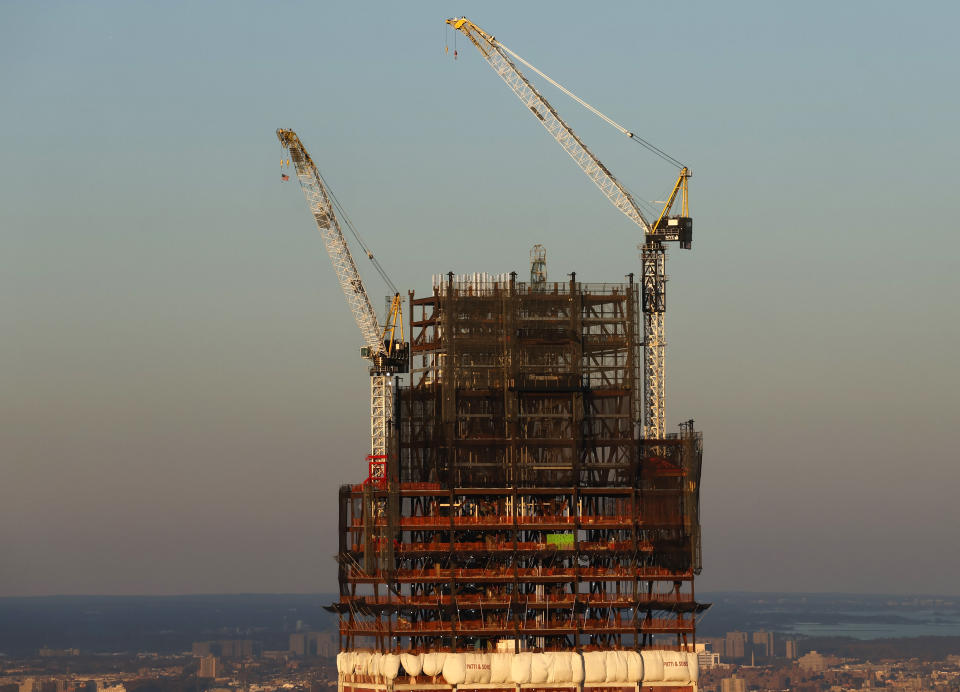Investors are gathering on Monday at JPMorgan’s (JPM) Manhattan campus to hear from CEO Jamie Dimon and his management team, and they will listen for answers to some key questions.
Who could succeed Dimon, the longest-serving boss of a major American bank? Can JPMorgan continue to generate record profits? How does it plan to deploy all of its excess capital? How exactly does it plan to integrate AI into its operations?
In almost every way, JPMorgan is currently in a class of its own compared to the rest of the sector.
It’s the nation’s largest bank by assets, it outperformed all competitors again in the first quarter, and its shares hit a new all-time high last week.
The worries some are feeling Monday at JPMorgan’s annual investor day aren’t about the present.
They have much more to do with the future.
Who replaces Dimon?
The biggest unknown for JPMorgan right now are the plans of its 68-year-old CEO, the longest-serving boss of a major bank and one of the best-known figures in the financial world.
Dimon has repeatedly pushed back on retirement expectations, but at last year’s investor day he acknowledged that he knows he can’t do this job forever.
“Succession is a problem no matter what,” said Mike Mayo, a banking analyst for Wells Fargo.
Mayo asked Dimon at last year’s investor day how many years he planned to remain CEO.
“Three and a half,” Dimon said before laughing. He added that “we have the same plan as before”, without specifying whether there was any truth in the figure he mentioned.
He is incentivized to stay until at least 2026 via a special retention bonus of 1.5 million options the board granted him three years ago and is required to stay in charge that long to exercise the options.


The retention plan has an interesting provision that allows Dimon to get out early. He can exercise the options if he leaves for a government position, according to a regulatory filing – elected or not.
On Monday, investors will hear from many executives considered frontrunners for Dimon’s job.
One of the pioneers is Jennifer Piepszak, who this year became co-CEO of a new division encompassing JPMorgan’s commercial and investment banking business alongside Troy Rohrbaugh, previously co-head of markets and securities services.
Another is Marianne Lake, who oversees JPMorgan’s vast consumer unit.
JPMorgan Chairman and Chief Operating Officer Daniel Pinto is widely seen as the person who would step in if Dimon were to leave suddenly and a new leader had to be named immediately.
Analysts agree that JPMorgan has a deep pool of talented executives, but the transition will be a challenge whoever succeeds.
“When the announcement comes out, the stock is going to go down because a lot of people are holding the stock because of him,” Gerard Cassidy, banking analyst at RBC, told Yahoo Finance.
What will JPMorgan do with its excess capital?
JPMorgan prides itself on being prepared for any unexpected shock.
One measure of this preparedness is capital, a buffer that protects the lender against future losses. The lender currently has more of this capital on a relative basis than it has ever had in its history.
“Our capital cut is outdated,” Dimon told analysts during an earnings conference call in April.
For its regulators, this is a good thing. But having too much can be a bad thing for investors.
In effect, this could mean that the company may not operate as efficiently as it should, causing some metrics that investors are very interested in to decline. One such measure is return on tangible equity, or ROTCE.
JPMorgan’s first quarter ROTCE far exceeded its competitors as well as its own target. But the worry is what will happen to this measure in the future, as regulators ask JPMorgan and other big banks to further increase their capital levels.
“How long does JPM want to hold onto its excess capital?” asked Betsy Graseck, an analyst at Morgan Stanley.


There are ways JPMorgan can deploy its additional capital. It can make new investments, such as buying another bank. It can also increase its dividends or share buybacks, returning more money to its shareholders.
But it will be politically difficult for JPMorgan, the most dominant bank in the United States, to get away with more acquisitions, such as the 2023 takeover of bankrupt First Republic from regulators.
Increasing dividends and share buybacks are also not a certainty. Dimon threw some cold water on the idea of increasing JPMorgan’s stock buybacks in April, saying “personally” that he did not want to buy JPMorgan’s stock at the April 12 price (195.43 dollars). It is now over $200.
“Excess capital is not wasted capital, it is profit in reserve,” Dimon said in April. “We will roll it out in a timely manner in a very effective way for our shareholders.”
The issue of excess capital is “an interesting problem, but it’s a challenge,” said RBC’s Cassidy.
How will AI transform JPMorgan?
Dimon didn’t shy away from talking about the potential of artificial intelligence in his annual letter to shareholders last month.
He compared it to “the printing press, the steam engine, electricity, computing and the Internet”, predicting that the consequences would be “perhaps as transformational as some of the major technological inventions of recent centuries”.
So how will this change JPMorgan?
Dimon offered some specifics on that, citing more than 2,000 AI and machine learning experts and data scientists currently working for the bank and a new position called chief data and analytics officer who sits on the operating committee.
But some of the work remains a mystery. JPMorgan, he said, now has more than “400 use cases in production in areas such as marketing, fraud and risk” and he sees AI helping the bank “reimagine workflows.” complete work” and “to improve virtually every task”.
Investors will be tuning in for more details, both in terms of JPMorgan’s investments and potential savings over time.
Last year, JPMorgan budgeted $15.3 billion for technology, the highest amount ever and the largest annual such expenditure among U.S. banks. Analysts expect the budget to be bigger in 2024.
“I think JPMorgan could become the Nvdia of the banking industry,” Mayo said in March, referring to the chipmaker that has benefited greatly from the AI explosion.
“They have the resources, the spend, the data, the processes and the people in place…They are starting from a position of strength more than any other bank.”
David Hollerith is a senior reporter for Yahoo Finance covering banking, crypto and other areas of finance.
Click here for in-depth analysis of the latest stock market news and events that move stock prices..
Read the latest financial and business news from Yahoo Finance